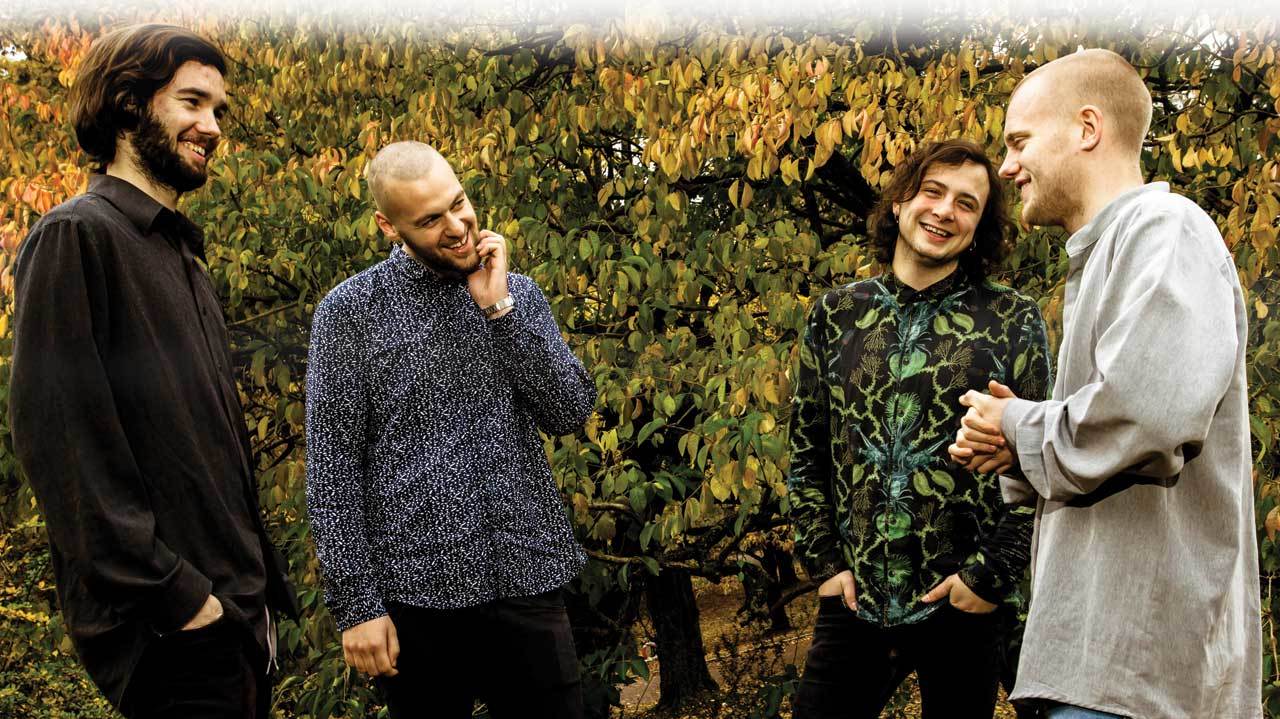Shaman Elephant: It's jazz rock, Jim, but not as we know it
Time to get to know Norwegian psych-pedallers Shaman Elephant

Settled by Vikings, nestled between mountains and the North Sea, Norway’s second largest city Bergen is home to a thriving music scene where jazz and rock collide, producing a chimera that’s unique to the Scandinavian country. “It’s like jazz rock in Norway has its own meaning as opposed to jazz rock in the States,” says Shaman Elephant bassist Ole-Andreas Jensen. “It’s more rock in Norway than the general jazz rock in the States which is more funk, or fusion, so you get things like Elephant9 and Hedvig Mollestad Trio which are really rock but also have this improvised feel.”
Shaman Elephant’s debut album, Crystals, is equal parts psychedelia, prog, stoner and jazz. Jensen, Jard Hole and Jonas Særsten had played together in different incarnations when guitarist/singer Eirik Sejersted Vognstølen approached them. “We actually wanted to start two different bands – one rock band and one jazz band,” says Vognstølen. “But we thought, why not put the two together and make one band?”
They released their debut EP More in 2015, which attracted the attention of Karisma Records, home to fellow jazz prog rockers Seven Impale. “Before that we thought we’d just release another EP and try to get some more gigs but they approached us with a record deal and we were like, ‘Whoa, we don’t have the money or material!’” says Jensen. “We were kind of stressed but it really sparked our inspiration. We dived in and wrote a whole bunch of riffs and songs and then it just came together. It was a fast, intense writing process.”
The quartet recorded in Solslottet Studio with producer Iver Sandøy. “It means the Sun Castle, the Castle of the Sun,” says Særsten, to which Jensen adds: “It’s located in this old meat factory close to the city centre in Bergen. They turned this building into a facility of different studios, rehearsal rooms, and a concert stage. We recorded the whole band at once and did the vocals afterwards and some extra guitar overdubs. But for the most part it’s live. That’s what we wanted to do with this album because we’ve established a live sound that we want to maintain.”
The band cut everything in four days which piled on the pressure, particularly when there is so much improvisation in their music. “When you have 12-minute songs and you fuck up with 10 seconds left in the last minute, it’s easy to get frustrated,” says Særsten. “But to maintain the live sound we want, that’s the price you have to pay and I’m happy to pay it. I like the live studio way of thinking a lot, it’s very honest if you ask me.”
Now the band are gearing up to take Crystals out live in 2017, hoping to book their first shows beyond their homeland’s borders. “If you ever want to make money playing this kind of music, you have to get out of Norway,” says Særsten.
“Luckily, we’re not in it for the money,” adds Jensen with a wry smile. “We’d be fucking unhappy if we were!”
Sign up below to get the latest from Prog, plus exclusive special offers, direct to your inbox!
Prog File
Line-up: Jard Hole (drums), Ole-Andreas Jensen (bass), Jonas Særsten (keyboards), Eirik Sejersted Vognstølen (guitars/vocals)
Sounds like: A psychedelic guitar genius jamming with a jazz organist as the rhythm section opens a wormhole in time and space
Current release: Crystals is out now on Karisma
After starting his writing career covering the unforgiving world of MMA, David moved into music journalism at Rhythm magazine, interviewing legends of the drum kit including Ginger Baker and Neil Peart. A regular contributor to Prog, he’s written for Metal Hammer, The Blues, Country Music Magazine and more. The author of Chasing Dragons: An Introduction To The Martial Arts Film, David shares his thoughts on kung fu movies in essays and videos for 88 Films, Arrow Films, and Eureka Entertainment. He firmly believes Steely Dan’s Reelin’ In The Years is the tuniest tune ever tuned.

